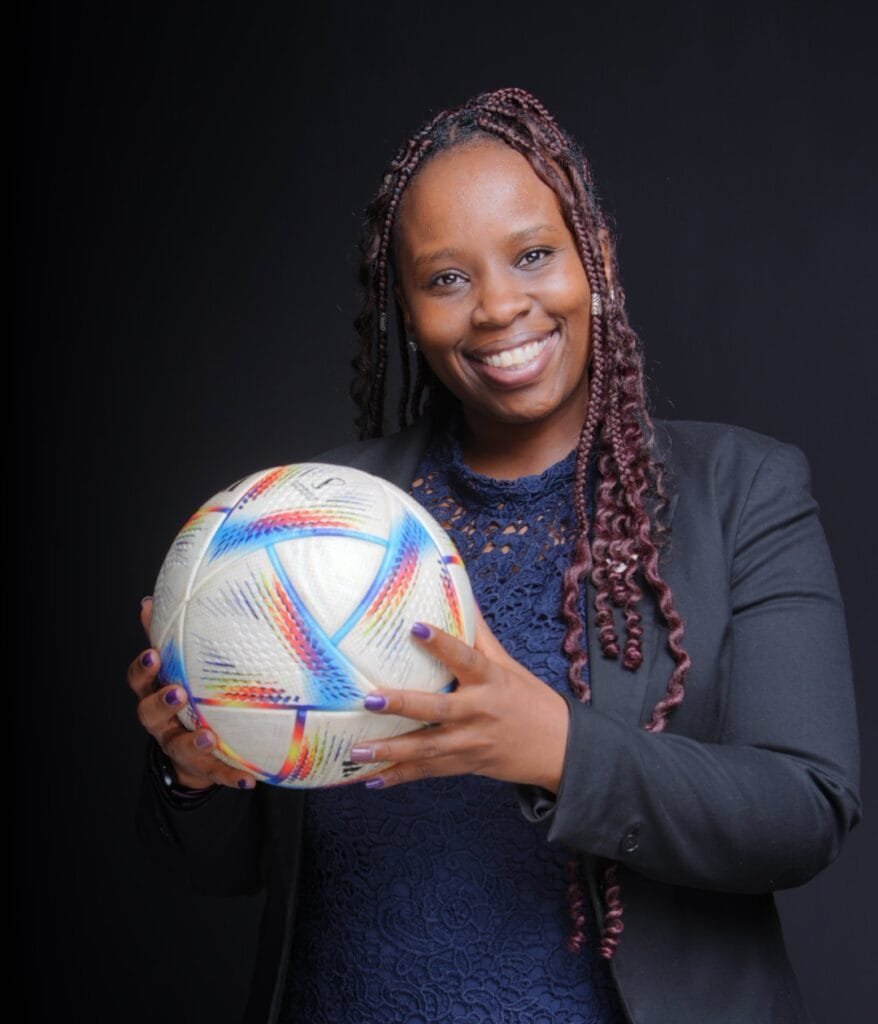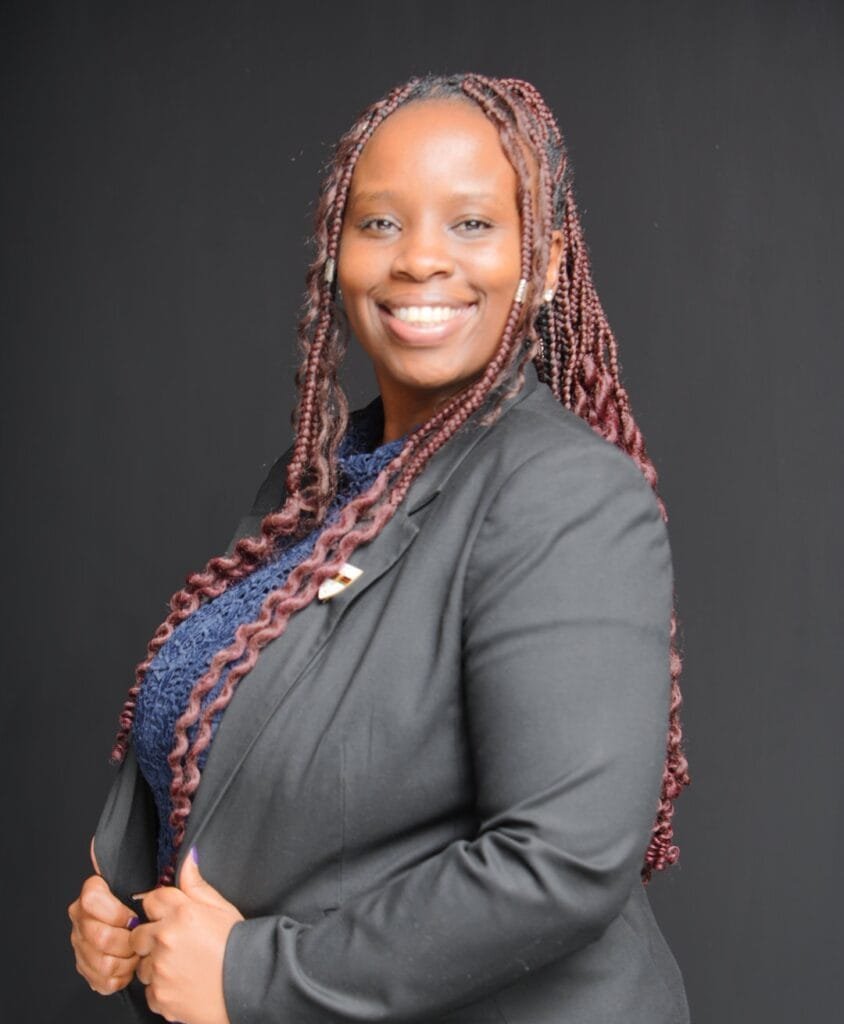
Your journey into sports industry: What inspired you to pursue a career in sports industry, and what were some of the biggest challenges you faced along the way?
What inspired me to pursue a career in sports was my deep love for it alongside a strong internal drive to break barriers and create a path where there wasn’t one. Growing up, I didn’t see many people around me—especially in my community—who had built careers in sports beyond playing at the grassroots level. There was a real lack of role models who could show that sports wasn’t just a hobby, but a legitimate and impactful profession. That absence made me want to become the example I never had.
Another major challenge was the way sports is often perceived in many parts of African society—as a distraction rather than a viable career. There’s a strong emphasis on professions like medicine, finance or engineering and choosing a sports-related path can be seen as risky or even irresponsible. I had to constantly prove—to others and sometimes even to myself—that my passion could also be purposeful. Pushing through those cultural expectations, staying focused and building credibility in a space that isn’t always respected has taken a lot of resilience.

Your current role and impact: As a leader in the sports industry, what are the most rewarding aspects of your work, and how do you see your role contributing to the development of women in sports?
As a consultant and lecturer, one of the most rewarding aspects of my work is having the opportunity to influence the future of the sports industry from both strategic and educational standpoints. I work with organizations to create frameworks that shape how sports is governed and developed alongside having the privilege of educating the next generation of sports professionals—many of whom will go on to be leaders in their own right.
What makes it especially meaningful is knowing that my work can directly impact the inclusion and empowerment of women in sports. Through consulting, I advocate for gender-sensitive policies, equitable funding and programs that prioritize female participation—both on and off the field as the right structures and leadership can open doors for women.
As a lecturer, I am in a position to challenge outdated perceptions and spark important conversations around gender, access and representation. I actively encourage more women to pursue careers in Sports Law and Sports Management—areas where they’re still underrepresented. I mentor young female students and professionals, helping them build confidence, navigate the industry and see themselves as capable of occupying leadership roles.
My goal is to create more pathways for women to succeed and to ensure the next generation enters a sports industry that is more equitable, inclusive and empowered than the one I stepped into.
Work environment and leadership: How would you describe the culture and dynamics in your professional environment? Have you seen positive changes regarding gender diversity and inclusion in the industry?
The culture and dynamics in my professional environment are evolving. Traditionally, the sports industry—particularly in administrative and legal spaces—has been male-dominated, with deeply rooted hierarchies and a tendency to sideline women, especially in leadership and decision-making roles. I often find myself having to assert my expertise more forcefully to be taken seriously in rooms where I was sometimes the only woman or the only African woman, speaking on governance or legal frameworks.
However, I’ve been encouraged to see a noticeable shift over the past few years. There’s a growing awareness—both at the organizational and academic levels—that diversity and inclusion are not optional; they are essential to the growth and credibility of the sports industry. More institutions are making conscious efforts to recruit women, invest in their development and promote inclusive leadership. We’re seeing more women rise in areas like coaching, sports law, governance and sports entrepreneurship, which was far less common a decade ago.
In my own work, I’ve been intentional about creating inclusive environments—whether that’s in the boardroom advising sports organizations or in the classroom where I teach and mentor the next generation. I make sure women have a voice and a visible presence and I challenge outdated norms wherever they show up.
That said, there is still a long way to go. True inclusion is not just about representation, but about influence—ensuring that women are not only in the room, but also shaping the decisions being made. My role is to keep pushing those boundaries and to help foster a culture where talent and competence are recognized regardless of gender.
Balancing professional and personal life: Managing a high-profile career in sports can be demanding. How do you balance your professional responsibilities with your personal life and well-being?
One key strategy I’ve adopted is setting clear boundaries between work and personal time. It’s easy for professional responsibilities to bleed into every area of your life, especially in consulting and academia, where people often expect constant availability. I’ve learned to say no when necessary and to protect time for rest, reflection and family—because that fuels my long-term sustainability.
I also prioritize well-being through structure. I plan my days around core priorities and build in time for self-care, whether that’s exercise, reading, quiet time or just being present with loved ones. It helps me stay grounded, especially during intense project periods or teaching terms.
Finally, I surround myself with a strong support system—mentors, peers, friends and my consultancy partners who understand the demands of this space and remind me that I don’t carry everything alone. I’ve also found that mentoring others brings balance and purpose to my own journey—it reminds me why I started and helps me stay centered on impact over pressure.
Personal motivation and advice: What keeps you motivated on a daily basis, and what advice would you give to young women who aspire to leadership roles in the sports industry?
I love what I do.
A piece of advice I would give is perfectly echoed by Confucius & the late Steven Paul Jobs:
“If you love what you do, you’ll never work a day in your life!”


